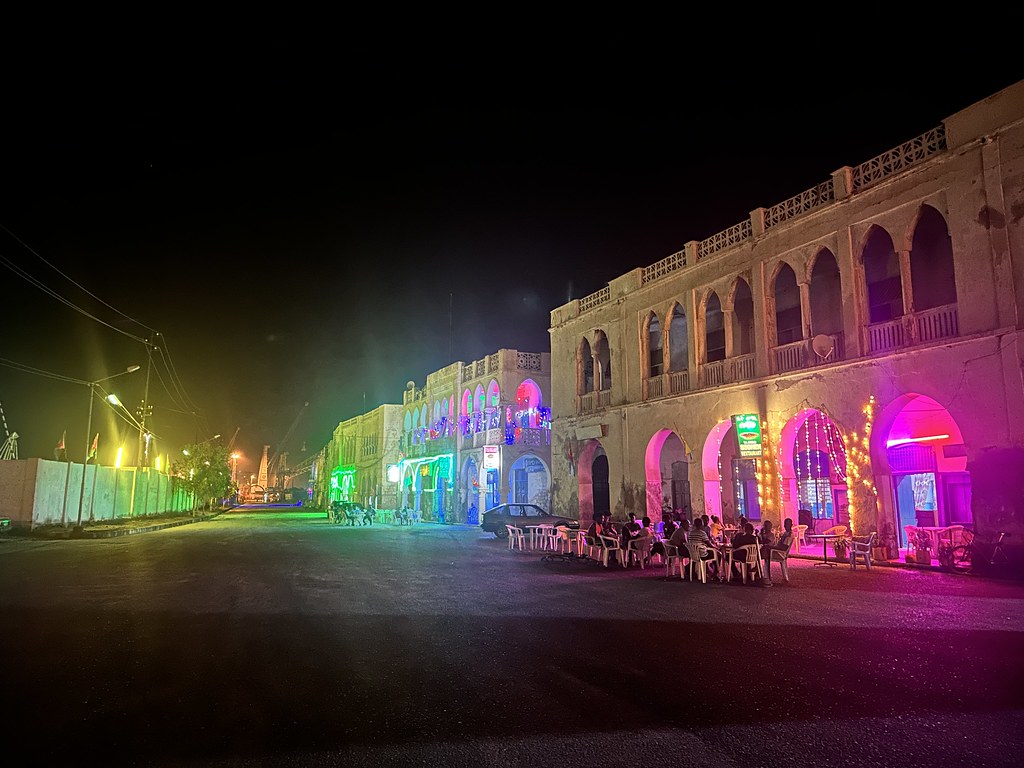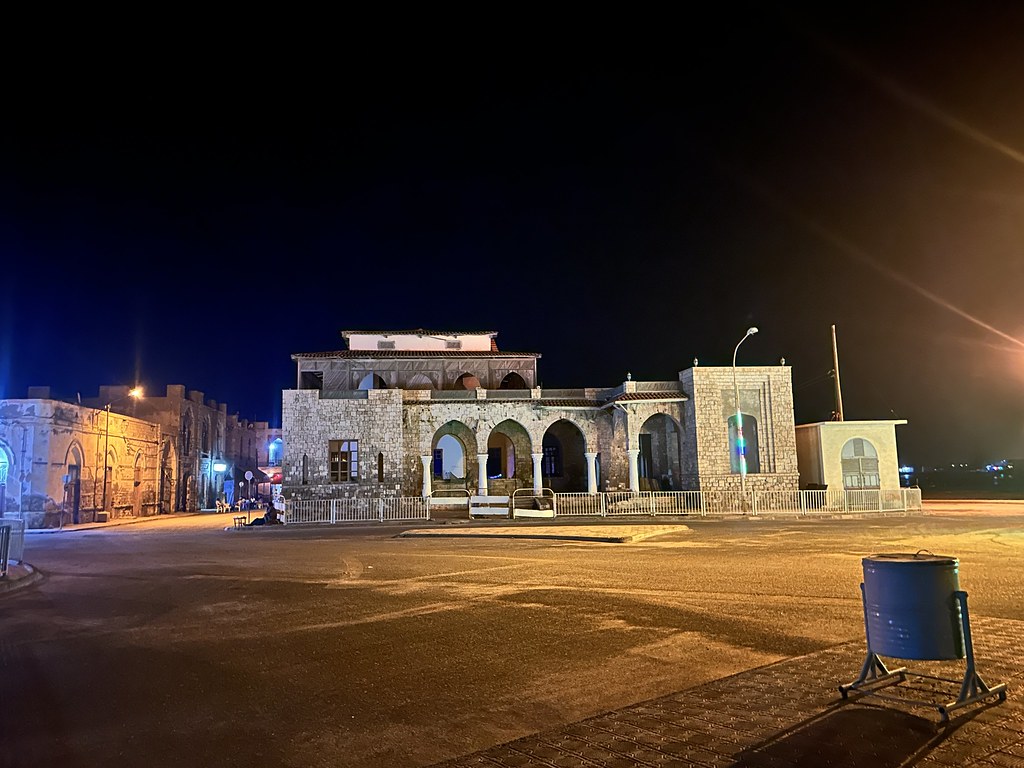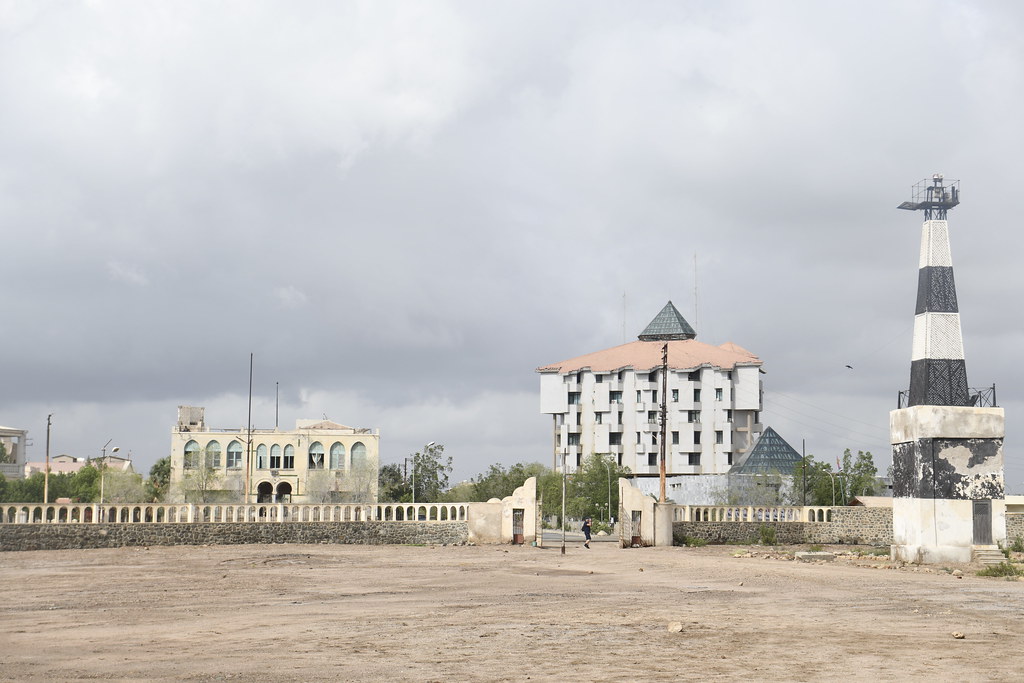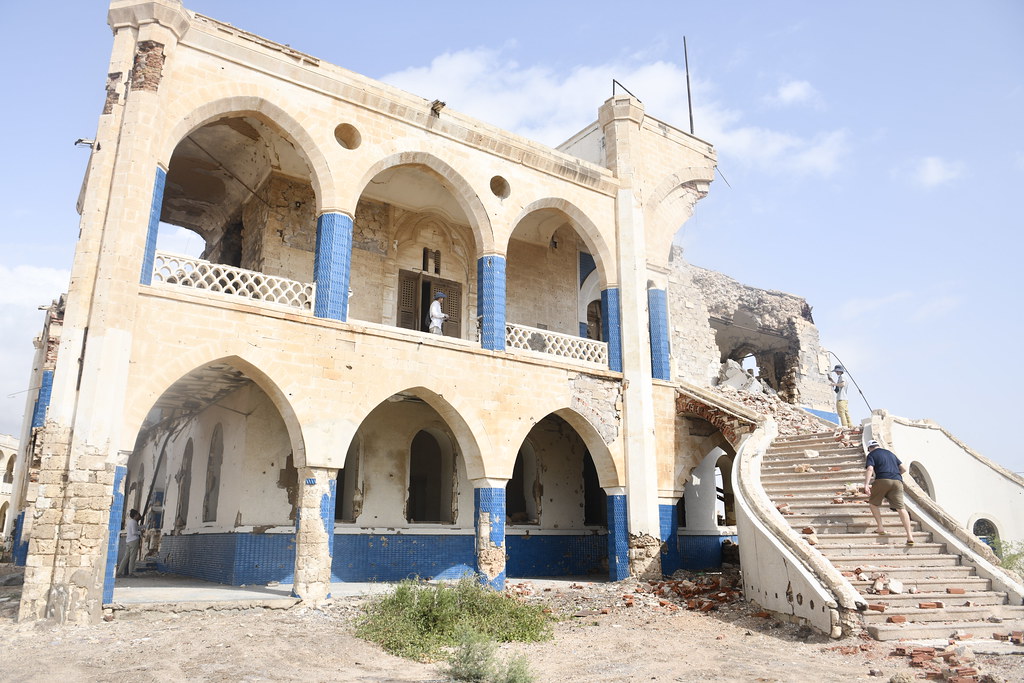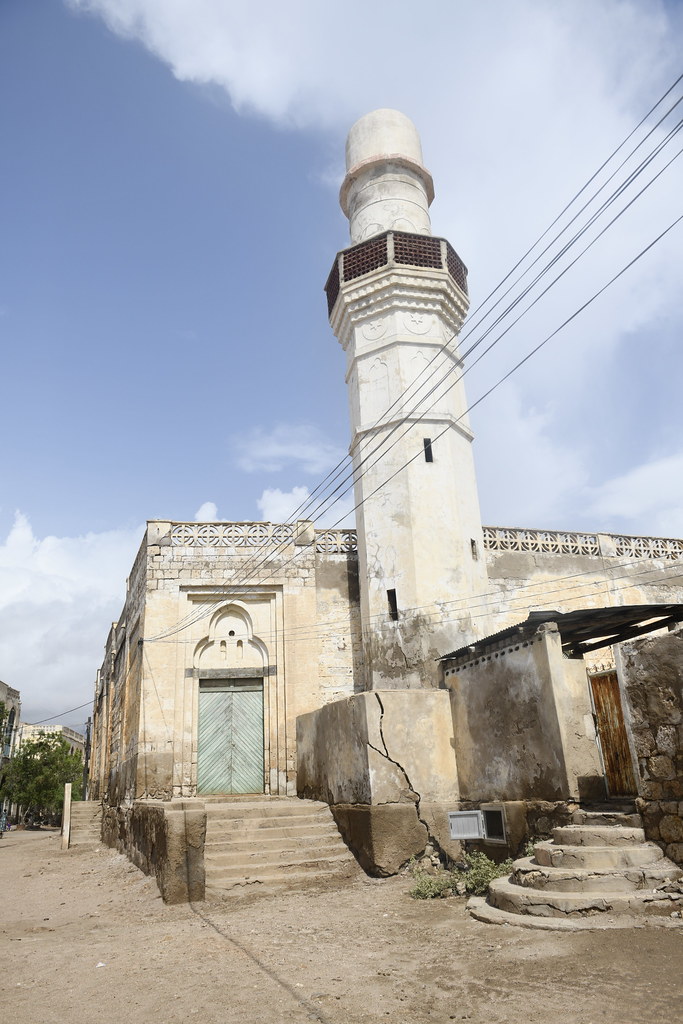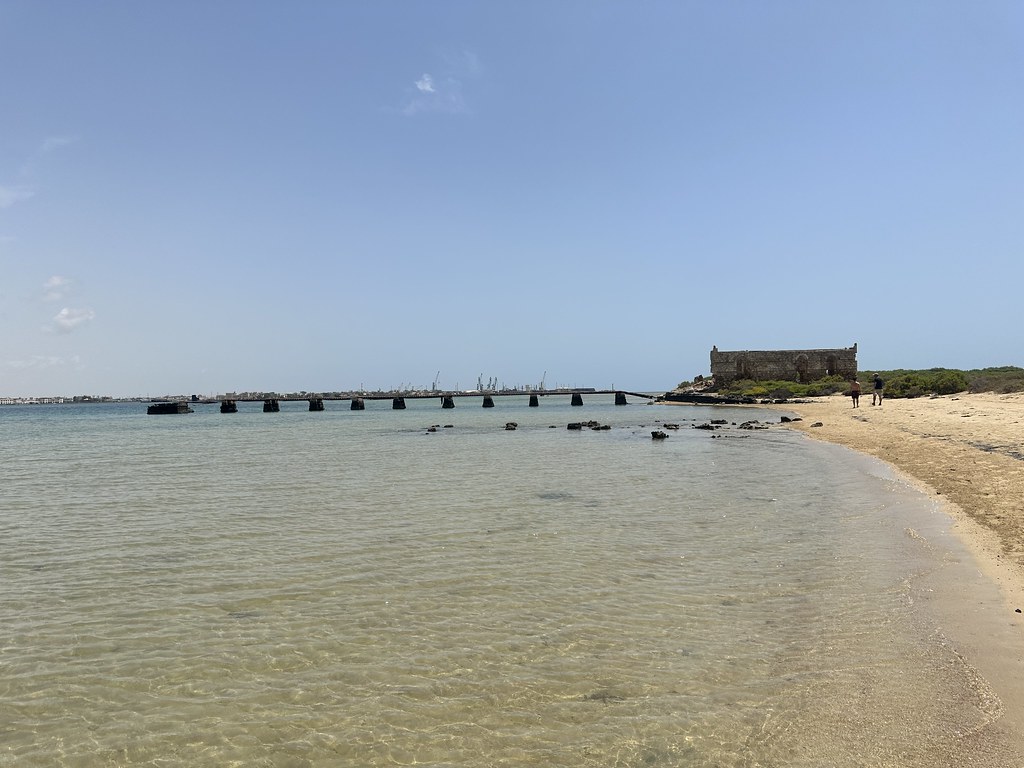We’re skipping ahead from Somaliland to Massawa today, but if you want to read about how we got into Asmara yesterday from Somaliland: read here.
After arriving a day later than planned in Asmara from Somaliland and Addis Ababa we quickly had lunch in the capital and immediately drove out in the afternoon for a 120km journey to Massawa, a colorful port town mixed with Italian, Egyptian and Ottoman architecture built along Africa’s Red Sea coastline.
Drove by a few abandoned Ethiopian tanks from the Badme War that laste from 1998-2000:
We arrived at night where we checked into the Grand Dahlak Hotel, reminiscent of the era of the Italians.
Views of Massawa from the hotel rooftop:
Although gorgeous from the outside, the hallways and rooms looked like they hailed from a budget version of The Shining:
After freshening up from a long journey from Somaliland, we headed out into Massawa’s atmospheric but empty downtown for a few drinks.
The next morning we began our day at the local museum, with an included English speaking guide that led us through exhibits on local wildlife all the way to Eritrean independence from colonial rule.
The guide then left his post (I guess he made it seem that he was going to take a long extended lunch break) to explore ruins from the early Arabic/Islamic settlers of the 8th century
One palace stood out in particular.
A real urban explorer’s paradise.
We then went on walking tour to take in the unique mixture of Turkish and Italian architectural designs stopping at all sites of interest.

Massawa was the capital of the Italian Colony of Eritrea until the seat of the colonial government was moved to Asmara in 1897.
You can still witness remnants of the Ottoman/Turkish influence on Massawa here:
According to our guide along this street, you can see Turkish influence on the left, Egyptian on the right.
As we were sweltering in the wet heat of 95ºF during our walking tour, our guide from the museum began to look for water only to be turned away store after store. It was then confirmed for us that the entire town had completely run out of bottled purified water.
Local Eritreans primarily drink purified tap water (which they consider relatively unsafer for the Western gut) and buys the rest from Sudan and the UAE, the former of which has stopped exports as it is currently going through the equivalent of a fresh civil war. Therefore the little bottled water they had left were marked up to over $56 a case, if they were to have any at all. Therefore we drove back to the hotel for water and then changed for a quick boat trip from the hotel’s docks out to Green Island.

Green Island is located 5km off Massawa and for many, a favorite beach in all of Africa.
The white sand beach and crystal blue waters offers a fantastic spot to unwind and enjoy a swim.
After a 45 minute swim around Green Island, we sailed back to the hotel, had lunch and made our way back to Asmara.
![]()
- At time of posting in Massawa, it was 32 °C - Humidity: 65% | Wind Speed: 3km/hr | Cloud Cover: it's hot as a dumpster fire again






